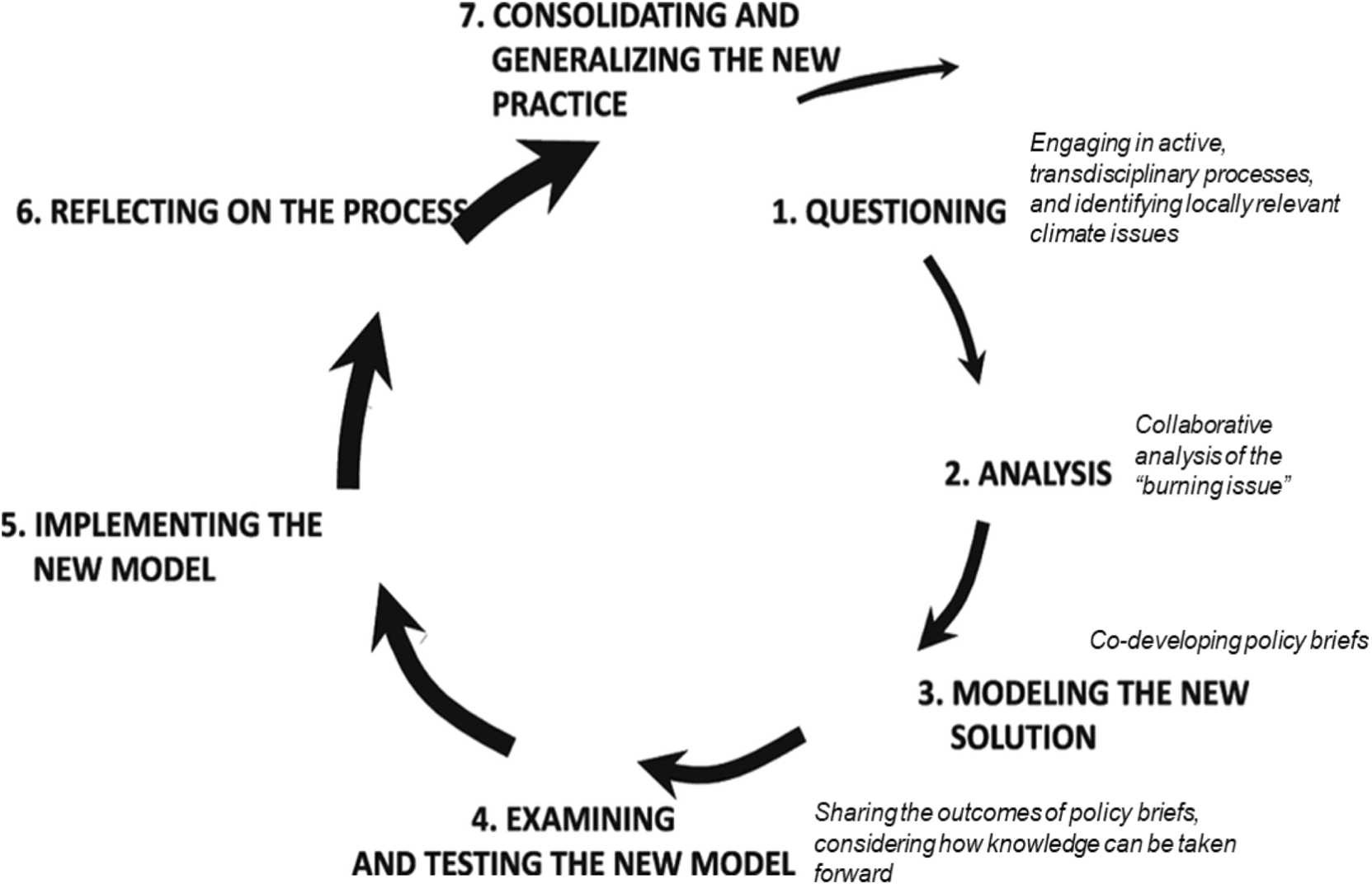Exploring the role of transdisciplinary learning for navigating climate risks in African cities: The case of Lusaka, Zambia
Climate risks in African cities are complex. Actors must adopt new, collaborative practices to respond to such risks. The theory of expansive learning was deployed in this study to investigate the process and nature of change emanating from transdisciplinarity for navigating such risks. Expansive learning is concerned with the transformative agency practiced by actors to redefine their practices, which are rooted in a particular cultural and historical context, towards novel collaborative navigation of complex problems. Expansive learning actions taken by local authorities in Lusaka (Zambia) during their participation in the Future Resilience of African CiTies and Lands (FRACTAL) project were explored. Like other actors in African cities, these authorities are dealing with critical development challenges. FRACTAL enabled a learning environment in which local authorities worked with other actors to grapple with drivers of climate risks, which stem from complex development histories. Learning actions taken by these actors indicate transformative agency on their part to begin breaking out of historical patterns of work. Findings suggest that the potential for change for navigating climate risks in African cities lies in actor groups transforming these complex issues into contextually-relevant problems that are characterised by historicity, and transforming themselves (i.e. their practices) to act on these. Principles of transdisciplinarity enabled this in FRACTAL, namely: learning processes rooted in real-world problems, valuing participation and collaboration, including different evidence and perspectives, and embracing emergence. Tensions associated with the work environments of actors in Lusaka need to be overcome before complex climate risks can be collaboratively navigated.
